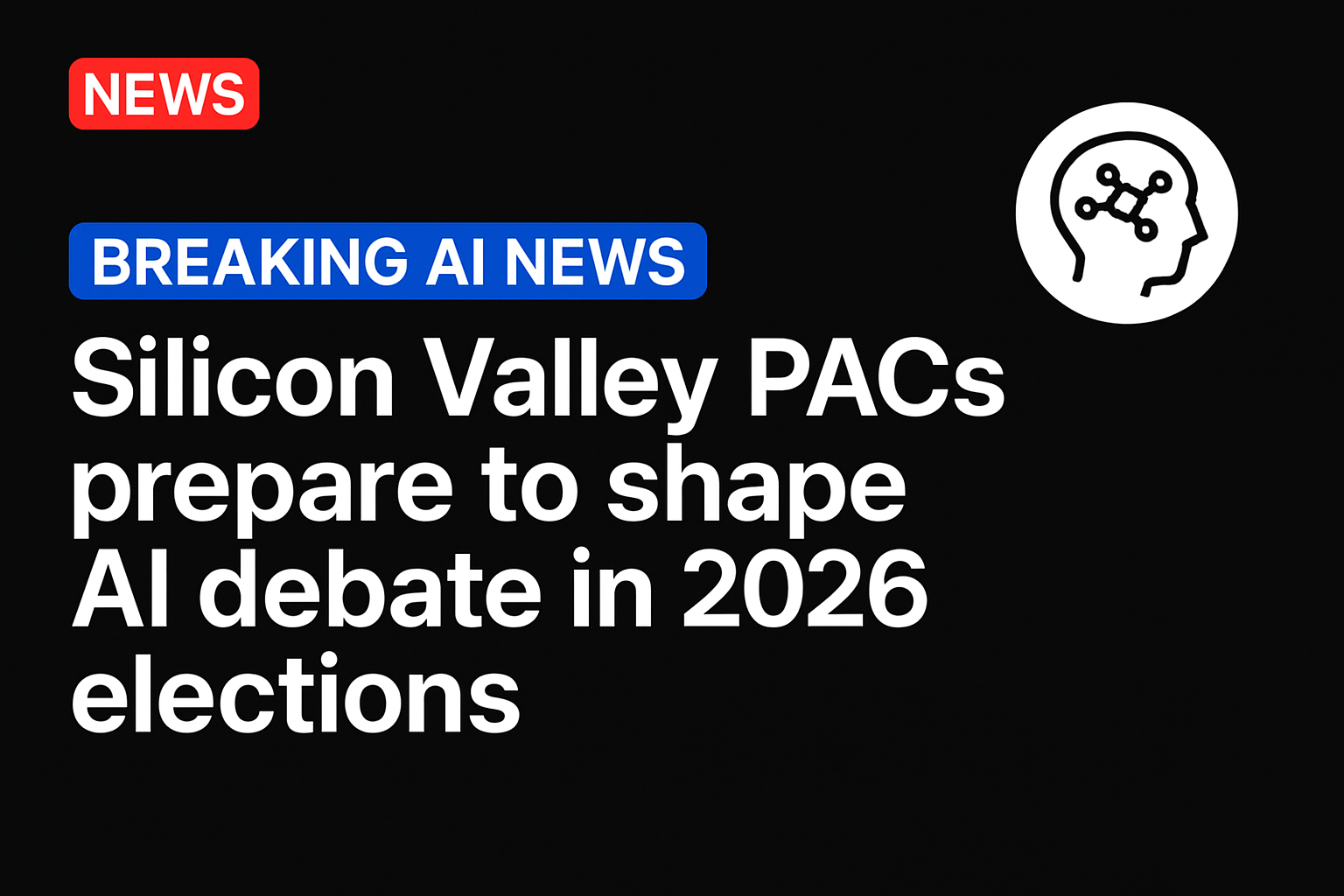Silicon Valley is preparing for the 2026 midterms not just with code and capital but with campaign cash. A new political network called Leading the Future has emerged with more than $100 million pledged to back candidates and oppose those seen as hostile to artificial intelligence. First reported by the Wall Street Journal last week, the group is supported by venture capital firm Andreessen Horowitz, OpenAI president Greg Brockman, and other prominent AI investors and executives.
The move signals that AI policy has shifted from hearings and white papers into the electoral arena. Supporters say the money will help secure “sensible guardrails” rather than restrictive laws.
Critics argue it represents an effort by the industry to shape rules in its favor at a moment when AI’s societal impacts — from misinformation to automation — are under heavy scrutiny.
From lobbying to PACs
Technology companies have long lobbied in Washington, with Google, Meta, and Amazon each building large policy shops during the past decade. But Leading the Future marks a new phase of political action committees dedicated specifically to AI policy.
Unlike traditional lobbying, which focuses on persuading lawmakers, PACs channel funds into campaigns, voter outreach, and advertising to influence who gets elected in the first place.
The network is structured as a set of super PACs, giving it the ability to raise and spend unlimited amounts as long as it does not coordinate directly with candidates. Its backers see this as essential to counter what they view as a growing patchwork of state and federal proposals that could hamper AI development.
How this compares to crypto PACs
The effort closely mirrors what the cryptocurrency industry did in 2024 with a super PAC called Fairshake. That group raised and spent more than $100 million to influence congressional races and is expected to remain active in 2026. AI leaders watched closely as crypto’s political arm helped block some of the most restrictive legislation.
The difference is scale and scope. AI affects far more industries, from healthcare to defense, and has a broader presence in daily life. If Fairshake was a sector-specific experiment, Leading the Future may become a test of how technology itself organizes politically.
State legislatures as early battlegrounds
While Congress debates comprehensive AI legislation, many of the earliest laws are being drafted at the state level. California has considered requiring disclosures on generative AI content. New York has pushed for bias audits in hiring algorithms. Illinois has explored guardrails on automated decision-making.
Pro-AI PACs are expected to target state contests in these regions, backing candidates aligned with industry priorities. This reflects a broader strategy: prevent a patchwork of conflicting laws by shaping outcomes early. The approach echoes privacy regulation, where California’s Consumer Privacy Act set a precedent years before federal rules.
How voters will see the message
PAC money rarely stays behind the scenes. Leading the Future is expected to fund television and digital ads in swing districts portraying AI as a driver of economic growth, national competitiveness, and even public safety.
The strategy carries risks. If voters see AI primarily as a threat to jobs, privacy, or information integrity, industry-backed messaging could backfire. Crypto PACs discovered this in 2024, when some ads were criticized as tone-deaf amid market downturns. AI may face similar skepticism if political campaigns oversimplify complex issues like bias, surveillance, or misinformation.
Politics as platform
For Silicon Valley, the PAC push is about more than a single election cycle. It reflects a shift in strategy: treating politics as a platform. Just as operating systems like Windows or Android created ecosystems that locked in users and developers, PAC networks create political ecosystems that can protect innovation-friendly policies over the long term.
The comparison is not accidental. Investors like Andreessen Horowitz and executives like Brockman are seasoned in building and scaling platforms. Now they are applying that playbook to politics, betting that establishing influence early will shape the policy environment for years to come.
Source: https://www.eweek.com/




